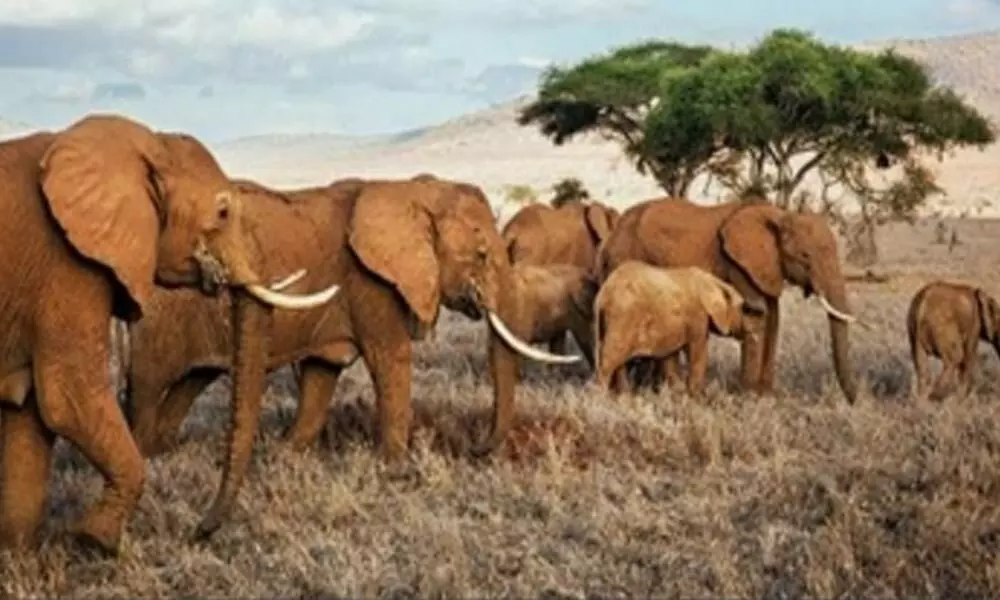Free roaming elephants in Namibia worsen human-wildlife conflict

Free roaming elephants in Namibia worsen human-wildlife conflict (Photo/IANS)
The growth in numbers of free roaming elephants in Namibia has resulted in an increase in Human Wildlife Conflict (HWC) incidences, Environment Ministry spokesperson Romeo Muyunda said.
Windhoek: The growth in numbers of free roaming elephants in Namibia has resulted in an increase in Human Wildlife Conflict (HWC) incidences, Environment Ministry spokesperson Romeo Muyunda said.
In an interview with Xinhua news agency, Muyunda said on Friday currently there are more elephants in unprotected areas than they are in protected national parks.
"Our elephant population in Namibia is healthy but this means that they move into farming and communal areas resulting in an increase in conflicts between humans and elephants. The elephants cause damage to infrastructure by breaking fences, damaging dams and water tanks and pushing over windmills to the disadvantage of communities," he said.
According to Muyunda, Namibia is home to about 24,000 elephants where the majority are free roaming.
"The northwestern population is estimated based on aerial surveys at 4,627 elephants (2,911 of those are in protected areas). The northeastern population numbers are over 19,549 with just 6,413 of those found in protected areas. Movements between different populations sporadically occur, providing opportunities for genetic interchange. Numbers will continue to be through aerial surveys at two to three year intervals," he said.
Muyunda said the country continues to educate communities on how to deal with elephants and how to mitigate conflict.
He said the country has also enforced other measures to mitigate elephant conflict such as population management by reducing numbers through auctions or translocations.
He added that the costs of HWC to communities and governments can be outweighed by the economic benefits generated by conservancies that devolve rights over wildlife and the right to benefit from its sustainable use to local communities.
"What we want to ensure is that there is minimum conflict," he said.
Last year, Namibia paid around $370,000 to individuals, farmers for livestock loss, crop damage, injuries to people and loss of life.

















